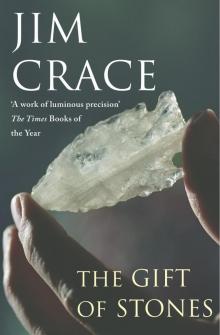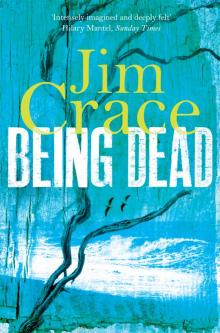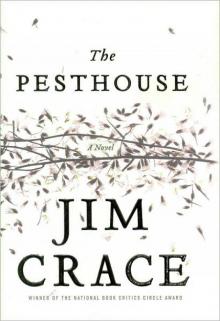Signals of Distress Read online
Page 3
‘He’s hell set on damaging his one true brother in the selfish interests of fraternity,’ was Fidia’s practised opinion.
At Aymer’s instigation, three factory hands had formed a Works Committee and should be (Fidia again) ‘sacked before they do some harm’. Matthias wished his brother were elsewhere, so that the sackings could take place without commotion. As in everything, his wishes would come true.
It was the plight of kelpers such as Rosie and Miggy Bowe in their rough cottages at Dry Manston that would provide Matthias with some respite from his brother’s quarrelsome philanthropy, and bring Aymer on the journey west. For forty years Hector Smith & Sons had bought supplies of soda ash for soapmaking from the kelpers on the coast beyond Wherrytown. Walter Howells and Walter Howells’s father before him had been Smith agents there, purchasing the kelp ash from the Dry Manston families and arranging wagons to deliver it to the manufactory, five days’ journey overland to the east. Now thanks to Nicolas Leblanc, a French surgeon with a taste for chemistry, a simple process was established to extract sodium carbonate from common salt. It was pure; it was cheap; and when the railway was complete it could be delivered within a day. ‘What is the point,’ Matthias asked Aymer, ‘in using Mr Howells when we have Leblanc?’
‘The point,’ said Aymer, ‘is our Duty. The Smiths and Howells have been partners since we were young. Our fortunes have been interlocked. And Mr Howells has contracts – moral ones at least, if not legally established – with families who rely on stooping in the sea for kelp for their small incomes.’
‘Well, let them give their backs a rest and let them dry their feet. We have no further need of kelp. I cannot argue further.’
‘I will not let this rest.’
‘Aymer. The choice is mine, not yours. You well know the stipulations in Father’s will. Besides, my letter to Mr Howells is already written and ready for dispatch. I will not go back on my word.’
‘You cannot break their trust by letter! What friends are we to hide behind the mail?’
‘You would prefer, perhaps, to write a sonnet?’
‘I would prefer that you and Mr Howells would sit down face to face …’
‘You want me then to take an empty wagon back to Wherrytown to tell a man whose face we do not know that we desire to purchase better, cheaper soda somewhere else? The man will take me for a fool, as, Aymer, I take you.’
‘What of your duty, then? What of your conscience?’
‘And what of yours?’
‘My conscience remains clean.’
‘Then you can take the wagon west. Why don’t you? Or take the coastal boat, for all I care. Our father might have left the running of this works to me, but I do not think he stipulated how Duty and Conscience should be divided.’
‘Well, then, if it cannot be you it must be me. I will travel to see Mr Howells with this bad news.’
‘Then do so, sir. And do as little mischief as you can.’ And may you break a leg en route.
Now Aymer was ensnared. He had no appetite for such a long and testing journey. He wasn’t suited to the countryside. He’d never travelled far from home. But once arrangements had been made for his departure for Wherrytown he found himself aroused and impatient. Perhaps when he was away from the city and in a place where surely he might count on some respect, he could find for himself what more than Justice and Reform he had desired for all his adult life, a loving country wife.
So Aymer Smith had taken the Ha’porth of Tar on the journey west in a fearful and a hopeful mood. He was surprised how travel unleashed him, how he could talk to sailors on the boat with a freedom absent from his home and city life. He was encountering, also, that other liberation which is the gift of travel and unfamiliar places. He – the virgin and the masturbator – was poised, engorged and shallow-breathed with expectations and desires. So now, in Wherrytown, his tears short-lived, his letters written, he left his cold room at the inn ostensibly in search of George, but mostly to sniff round like a dog, to poke his nose in rooms, to seek a friendly face, to find the margins of his new emancipation. He went up two flights of steps to reach the ground-floor parlour. George was sitting with a pipe.
‘Is there a boy to take these letters for me?’ Aymer asked.
‘There’s only me.’ George took the letters. ‘What a place! No boys, no boots, no chambermaids! No tips!’ he said, and walked out of the parlour without leave.
Aymer stood with his back to the grate which Mrs Yapp had cleaned and prepared, and waited for the lighting of the woods. He hadn’t been waiting more than thirty seconds when a young couple entered from the lane, a thin-haired man with spectacles and a woman without a bonnet but kept warm by a tiered shoulder-cape which fastened at her chin. She would have been a fool to wear a bonnet. Her hair was held in one loose tress by black ribbons. It was so sandy in colour and so buoyant that Aymer could not prevent himself from staring.
‘We were hoping for a bit of fire,’ the young man said, rubbing his hands at the empty grate.
‘Indeed, we all were hoping for some fire, but, it seems, our hosts do not subscribe to wasting warmth on guests,’ said Aymer, blushing. He held his hand out for the man to shake. ‘Aymer Smith. I’m rooming here. On business.’
He put his hand in Aymer’s. ‘And so are we, except it’s not on business that we’re here. We’re taking passage on a boat to Canada. If it ever comes! It was due two days ago, but there’s no sign of it. My wife and I have been walking on the quay and there are no sails on the sea except for fishermen.’
‘Then you are emigrants?’
‘We are. God Save Us. I’m Robert Norris. And this is Mrs Norris and has been for a fortnight now. Katie is her name.’
Aymer put his hand out once again and Katie put her hand in his. It was cold and smooth and dry, as flimsy and as modest as her hair was grand. ‘I’m happy to meet you, sir.’
‘A pity that our acquaintance will be so short.’
‘Well, not so short,’ said Robert Norris. ‘I must suppose that we are trapped here for a few days now. I can’t be sure if that is happy news or not.’
‘Don’t be so doubting, Robert.’ His wife was the teasing not the bashful sort. ‘They’ll not want dismals like yourself in Canada.’
‘It’s not the colonies that bother me, but what we might endure on the passage there. I’ve not the constitution for the sea.’
‘And nor have I,’ said Aymer. ‘But I have taken passage here by sea and I have ridden out the worst of storms.’ He remembered now the bruising to his shoulder which, truth be told, had stopped hurting the moment Katie had come in. ‘I tumbled from my berth and took a blow. But here you see me, well set up and only disembarked today. The observations to be made are these: on ship a passenger should have no fear of nausea if he stays off the deck and is not tempted by the portholes. Stay in your quarters. Let the wooden walls be the furthest horizons you allow. Let the deck above you be the sky. Take all your orientations from the space allotted you, and as the ship tips and rolls so you do too. Your body and your eye are in concord. But think to walk on deck to witness what a storm can do first-hand, and you will feel your body bucking like the ship. Your eye will sway between the still horizon or the stiller stars and battle with the masts and rigging of the boat so that your every step is like that of a drunken man. And thus seasickness will set in.’ A pleasing and a helpful lecture, Aymer thought.
‘It seems a pity to go so far and see so little,’ commented Katie.
‘The sickness is the price you pay for seeing,’ said Aymer. ‘I think there might be some general truth in that philosophy. To learn is to suffer. To suffer is to learn.’ He chuckled at his observation. And Robert and Katie Norris beamed at him with such indulgence and such attention that he felt glad to be in Wherrytown. Normally he didn’t welcome scrutiny. Not that he was the kind of man to command the stares of strangers. He liked to think of himself as a plain man, plainly spoken. He didn’t care for adjectives, or anything that was t
oo ornamented. He liked the force of facts and objects, and he endeavoured to make his conversation instructional. ‘Still, such observations will not warm you from your walk,’ he concluded. ‘Our landlady is not at hand, it seems.’ He stepped across to the parlour sideboard, lifted the inn handbell and shook it. ‘That should bring our Mrs Yapp running.’
Mrs Yapp was not the sort to run. Anyway, she didn’t hear the bell. She wasn’t in earshot. She and George were in her sitting room with Aymer’s letters open on her table. Mrs Yapp had read them both out loud.
‘So that explains the soap,’ said George. ‘Take care he doesn’t pay for his lodgings here in bars of soap.’
‘And you take care to pay the gentleman some respect, George. He’s Smith & Sons. We’ll have to treat him sweet. I’d better see if I can find some bed sheets.’
‘What brings a man like that down here?’
‘To talk with Walter Howells, that’s what it said. Go on now, George. You’d better do as you’ve been bid and take these letters round.’ She shook her skirt and pinafore. She checked her stays and laces in the glass. She primped the jug-loops in her hair. ‘I’ll go and see if there is anything he wants.’
‘He’ll have no need of soap.’
When Alice Yapp and George came into the parlour, Aymer Smith and the Norris couple were sitting round the cold grate in happy conversation, or at least the Soap Man was in conversation and the other two were listening politely to his remarks about the beneficial freedoms of the colonies. Katie had loosed her hair and let it hang in one long bunch across her chest. Her husband had removed his boots and had his stockinged feet on a fireside settle, as if they could be warmed and dried by the memory of fire.
‘Mr Smith,’ said Mrs Yapp, as if it were the most aristocratic of names, ‘is it all pleasing to you?’ She made a genteel sweep of her hand.
‘We should like a fire.’
‘George! Lay a fire for Mr Smith. And sheets. I promised sheets.’
‘If that in’t hospitality,’ said George to no one in particular, ‘then what the Devil is?’
Aymer was cheered by the change in Mrs Yapp. So were Robert and Katie Norris. They’d been at the inn for three nights and Mrs Yapp had not so far expressed any word of welcome or shown any sign of hospitality. They had not lodged in inns before and took the Yapp indifference to be normal. But now with Mr Smith she displayed an accommodation to his comforts that was almost worshipful.
George put tinder in the grate and set off by the lane and alley to collect dry kelp and logs from the courtyard for the fire. He’d scarcely reached the courtyard when – happy chance – Walter Howells rode in, his yellow leather breeches, worsted stockings and high-lows caked in mud, his horse a little lame from galloping with a lost shoe. George ran to take the reins and pass on Smith’s letter.
‘Not now, not now!’ said Howells, brushing past George and stamping across the yard towards the alleyway of steps. ‘There’s been a wreck!’
‘What wreck?’
But Walter Howells was out of sight and at the inn’s front door. He didn’t remove his leather hat which, low at the crown and turned up at its eaves, revealed red shock hair and a redder face. Mrs Yapp and three guests whom he had not seen before were in the parlour – a fine-looking young woman and two clerkish men. He didn’t pause for pleasantries but broke into their conversation. ‘Alice. Bake some bread and pull some corks. You’ve got a full house for a night or two. That Yankee ship we were expecting has beached at Dry Manston and all the sailors on it are coming here and seeking beds.’
‘Dear Lord, how many beds?’
‘Oh, sixteen, seventeen. And a little dog! And they’ve got a Negro in a cart.’
‘You’re joking with me, Walter Howells.’
‘I am not.’
‘A Negro in a cart, you say? Well, we’ll see.’
‘You will indeed. You can expect them in the hour and, in that hour, I’ll have to find myself the smith. My horse has dropped a shoe.’
Aymer Smith – somewhat startled that this muddy, florid man should be Howells the kelp agent – stepped forward and offered his hand: ‘Please allow me to introduce myself. You say you need a smith. And I’m a Smith, but not much use with horses …’
‘Then, sir,’ said Walter Howells, ‘you’re not much use to me.’
3. Shared Beds
FOR THAT ONE HOUR between Walter Howells’s ‘You’re not much use to me’ and the arrival of the sailors from the Belle, Aymer viewed his task in Wherrytown with less timidity. The obligations of Duty and Conscience were unchanged, of course. He could not take pleasure in the lecture-with-regrets that he would have to deliver on ‘The Local Implications of Monsieur Leblanc’s Liberties with Salt’. But Walter Howells’s ill-manners in the parlour with Katie Norris there to witness had made the prospect of the lecture sweeter.
Aymer stood at the window of his room. In the courtyard Mr Howells was leading his unshoed horse to the smith that, for the moment, he might imagine more consequential than a Smith. Aymer could be patient. He would let Mr Howells absorb the wincing implications of the letter to him and its signature. How could Aymer know that George still had the letter – both letters – in his pocket and in the fever of ‘There’s been a wreck!’ had forgotten it? The letter was at that moment (he imagined) waiting on the agent’s parlour table. It would not be long, a couple of hours at the most, before Aymer could expect the verbose opportunity to accept the man’s apologies.
‘Matters of propriety and dignity do not engage me,’ he would say. ‘I have not weathered storms at sea in my passage here to Wherrytown to benefit from local courtesies and etiquettes or to test your manners, good or ill. We are plain men, I think, and plainly spoken. Indeed, I already have experience that you can speak your mind. So, sir, you will not take amiss the unhappy news that I must give to you. You may not know of it, but the industry of a Monsieur Nicolas Leblanc, a Frenchman, has made a mark on yours. And you, for all my efforts in your name, must be the poorer for it.’ Aymer could imagine the hunted, baffled, deferential look on Howells’s face as the bad news encircled him and taunted him but would not give its name until the Lecture nearly was complete. ‘I think your already spoken view,’ Aymer could conclude, ‘that I am little use to you assumes a sharper meaning now.’ Mr Howells would have no repartee for that. Aymer’s Duty would be done. Then there would be time to eat a country meal (with the Norris couple as his guests, perhaps; he really was determined to scrape acquaintance with them), to sleep well at the nameless inn and to take the return Sunday passage on the Tar. What further obligations could he have in Wherrytown?
He would, he thought, find Mr Norris and his wife, to enquire if they would like to share his dinner table. He had information on the topography of Canada that they would benefit from hearing, and some advice, too, on Self-Reliance. He took some soap for Katie Norris. Five bars. He imagined they’d serve her well on her long sea voyage. Perhaps she’d save one as a keepsake of her mother country, stored beneath the crapes and linens of her clothes drawer, in the timber bedroom of her cabin, on the virgin land, deep in Canada. Perhaps she’d wash her hair in Smith’s Fine Soap.
The thought of Katie Norris with her hair in suds hastened Aymer, but his bedroom door was opened before he could reach it. Mrs Yapp came in with sheets and bolster cloths.
‘You shouldn’t give no thought to Walter Howells,’ she said. ‘He didn’t know that you were Smith & Sons, the soap. He’ll be back and limping like his horse when he finds out.’
‘I would not waste a second thinking of it, Mrs Yapp.’
‘There, then, there’s no harm done.’ She set about making up Aymer’s bed. ‘We’ll get you comfortable,’ she said, ‘and then I’ll have to shift them other beds. You heard what Walter said. We’ve boatloads coming here and it’ll be a squeeze to find the rooms for them. Those Norrises will have to share, or sleep out in the corridor. I can’t be bothered with a fuss. You should’ve seen his wife when I explained. T
he blushes on that girl! You’d think I’d asked her to share a bale of hay with horses. I said, “You don’t get private rooms for what you’re paying me, not when there’s other guests to satisfy.” Still, it’ll be a taste of Canadee for her.’
‘You mean she’ll have to share a room with sailing men?’
‘There’s nothing wrong with sailing men except they’re rough.’
‘For how long will this be?’
‘Well, here’s the pattern to it, Mr Smith. The Norrises have passages aboard a ship that’s called the Belle of … some place I forget, and that’s the one that’s beached along the coast at Dry Manston. If they can get her off the bar and seaworthy and she’s not broken up for firewood, then the Norrises can leave and be in Canadee within the two months.’
‘If not?’
‘If not, the Norrises will have to share a room until they find another ship, or turn around and go back home, wherever that might be.’
‘It is not thinkable that they should share, even for one night.’
‘They’ve not the choice. I’ll not have shipwrecked men sleep in the street or in the stables. This isn’t Bethlehem. It’s damp and cold out there. I never heard that blushes did more harm than damp and cold. Besides, she’ll only have to blush a while and then they’ll all be shipmates, just you see. There’s plenty women in this town’d be glad to share a room with three or four Americans. Young Mrs Norris can take her pick!’ Her laugh was uninhibited and unoffending. She was a woman in her forties, playful, forthright, savoury, with some remains of beauty in her face if not her figure. Hers was a case for stays, although she was the sort whose stoutness was a charm. ‘There, that’s your bed dressed for the night,’ she said. ‘You’ll sleep like royalty. Don’t be surprised if I creep in between the sheets, it looks so clean and welcoming …’ Aymer reddened. He put his hand across his mouth. ‘Now, that’s me being comical,’ she said, noting Aymer’s discomposure. ‘I’ll not go uninvited anywhere. So there’s your sheets and there’s your bed, and anything you need from me is there for asking. You’ll not want soap, I see.’ She nodded at the stack of soap in Aymer’s hands. ‘They must be Smith’s.’

 All That Follows
All That Follows Quarantine
Quarantine The Gift of Stones
The Gift of Stones The Devil's Larder
The Devil's Larder Genesis
Genesis Continent
Continent Being Dead
Being Dead Harvest
Harvest Signals of Distress
Signals of Distress (2007) The Pesthouse
(2007) The Pesthouse